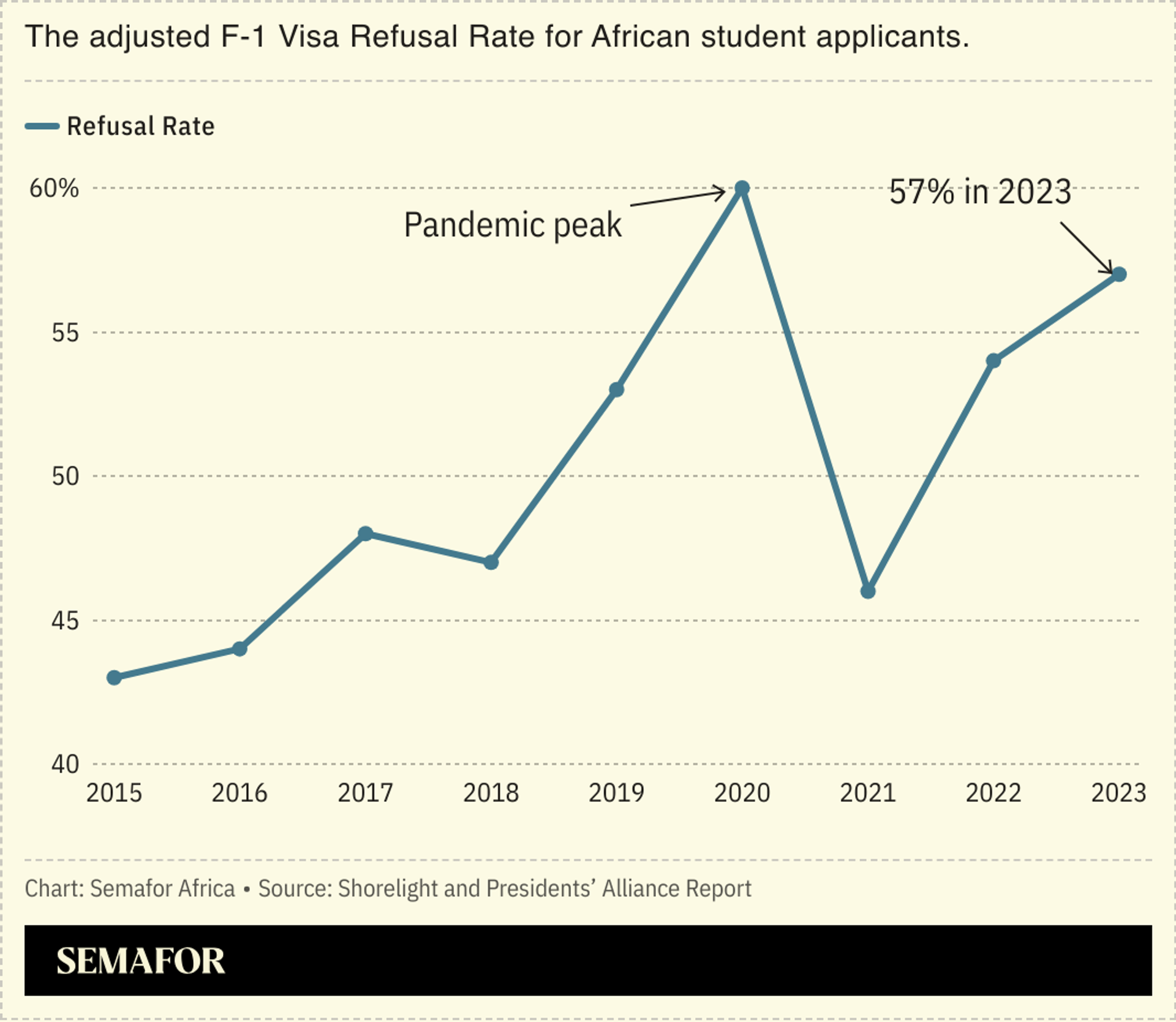The News
Nearly 60% of all students from African countries who applied to study at universities in the United States last year were denied the requisite F-1 visa by the State Department, according to a new report. The denial rate for students from Africa was the highest among all regions but the US State Department insists it has in fact granted more visas in aggregate to African students than ever before.

Countries that saw denial rates rise by 10 percentage points or more in 2023 were all located in Africa and Asia. Southern Africa notably recorded a much lower denial rate of 19%, compared to the continent’s overall 57% denial rate. With the exception of South Africa, Namibia, Botswana and Lesotho, denial rates for students from Africa have been increasing steadily since 2015, when the overall rate stood at 43%.
The report, by non-profits Shorelight and the Presidents’ Alliance on Higher Education and Immigration, analyzes State Department data.”The African continent has, by far, the highest visa denial rate than any other world region, and it is steadily rising,” write the researchers.
In this article:
Know More
A State Department spokesperson, however, told University World News that in the fiscal year 2023 (October 2022-September 2023) saw the highest ever number of student and exchange visas issued to African countries in its history and 61% more than pre-pandemic 2019. “Our embassies and consulates in Nigeria, Ghana, Zimbabwe, Uganda, Eswatini, Côte d’Ivoire and Madagascar all issued more student visas in 2023 than in any year in the past two decades,” the spokesperson reportedly said.
The State Department said last November that it issued nearly 40,000 student visas to African students in the fiscal year, of which more than 9,700 visas were to Nigerian applicants. Comparatively the U.S. issued “an all-time record” of more than 140,000 student visas to applicants from India.
Overall, international students at U.S. colleges and universities are said to spend up to $38 billion annually in the U.S. economy.
Immigration will be one of the most contentious issues in the upcoming US presidential election this November between Democrats presumptive nominee Vice President Kamala Harris and the Republicans’ former President Donald Trump.
The View From Europe
Nearly a third of Africans applying for a visa to Europe’s Schengen Area are rejected — the highest refusal rate of any region, according to a report by migration consultancy firm Henley & Partners. That’s despite the continent submitting the lowest number of applications per capita.
Africa’s applicants had a 30% visa refusal rate. European states primarily cited “reasonable doubts about the visa applicants’ intention to return home” in their rejections, the report found. The researchers argued the European visa system “clearly demonstrates apparent bias against African applicants,” despite justifications based on security or economic concerns.
The European Union will generate millions of euros more from the high rejection rates of visa applications by African visitors with a new increase in non-refundable fees. Citizens of the 26 member states within Europe’s Schengen area have unhindered borderless access within the area, while most travelers from elsewhere require visas. A 12.5% price hike that took effect on June 11 increased the cost of a short-term (90 days) visa application to €90.
